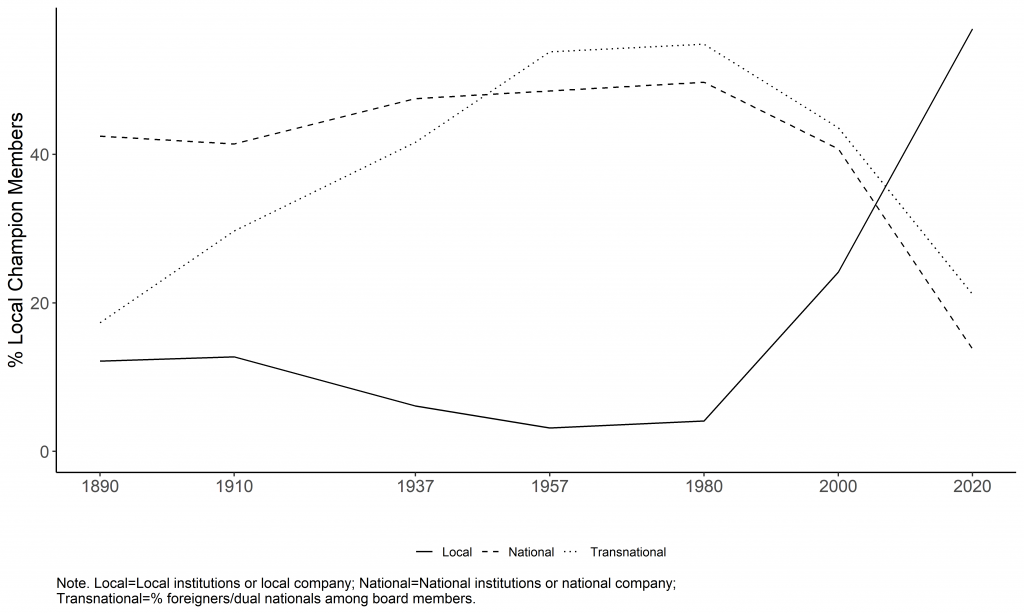Sinergia team members Michael Strebel and André Mach have written a paper on corporate elites ties to institutions and organizations at different territorial scales. Existing research has found an increasing transnationalization of company networks and a decline of companies’ ties with national institutions since the end of the 20th century. However, these studies have neglected the question of how companies are connected to the city- regions where they have their seats. In their paper, the authors conduct a long-term analysis of the multilevel ties that companies maintain with the local and the national context they are embedded in. To do so, they focus on the directors of the major companies in the three largest Swiss city-regions (Basel, Geneva, and Zurich) from 1890 to 2020. For seven benchmark years, they track the evolution of company directors’ multipositionality in local and national networks. In addition, to capture the transnational embeddedness of directors they look at the evolution of the percentage of foreigners and dual nationals among the corporate elite. Their analysis reveals three different phases of company networks’ multilevel ties. From the end of the 19th century to World War I, networks were mainly local and partly transnational, characterized by strong ties of companies to local institutions, weak ties to national institutions, and a certain presence of non-nationals in company directorates. From the interwar period to the fall of the Berlin wall companies’ ties were essentially national, with continued importance of local connections and an absence of non-national directors. From the end of the 1980s onwards directors’ local and national ties decline and directors’ backgrounds become increasingly transnational. Documenting the evolution of the relational embeddedness of companies allows to show the changing scales of companies’ activities in a long-term perspective. The results of this analysis further our understanding of the origins and the evolution of global capitalism.
→ Paper
